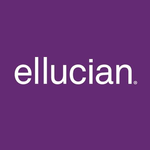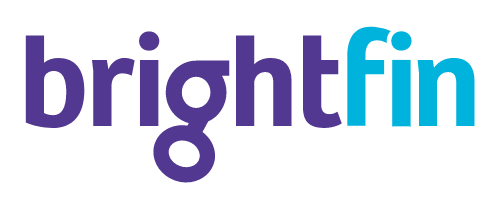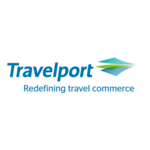Top Expense Management Softwares
Expense Management software plays a crucial role in modern business operations by streamlining the process of tracking, approving, and managing expenses. It offers businesses the capability to automate traditionally complex tasks such as receipt management, expenditure tracking, and financial reporting. By implementing Expense Management software, organizations can enhance accuracy, reduce time sp... Read More
97 companies found
Product Description
Ellucian is a leading provider of software solutions tailored specifically for the higher education sector. Our cloud-based offerings are designed to help colleges and universities streamline their operations and enhance the learning experience for students and staff alike. Whether you're handling student information, managing campus resources, or facilitating online learning, Ellucian's integrate... Read More
Users
- • No Data
Industries
- • No Data
Market Segment
- • No Data
Product Description
Egencia is a travel management company that simplifies the way businesses handle travel arrangements. Designed for companies of all sizes, Egencia provides an intuitive platform where employees can book flights, hotels, and rental cars with ease. It also allows managers to keep an eye on travel expenses and ensures company policies are being followed. The goal of Egencia is to make business trave... Read More
Users
- • No Data
Industries
- • No Data
Market Segment
- • No Data
Product Description
Koppr is designed to make financial planning easier for modern businesses. It helps companies manage their day-to-day financial operations efficiently so they can focus on what they do best. Koppr offers a clear and simple way to track budgets, manage expenses, and forecast financial outcomes. This means you can stay on top of your finances without having to worry about complicated processes. It... Read More
Users
- • No Data
Industries
- • No Data
Market Segment
- • No Data
Product Description
Emburse is a software solution designed to help businesses streamline their expense management and spending processes. Think of it as a smart assistant that takes the hassle out of managing company expenses. Whether you're a small startup or a large enterprise, Emburse can simplify how you handle travel expenses, reimbursements, and corporate cards. Emburse offers easy-to-use tools that automate ... Read More
Users
- • No Data
Industries
- • No Data
Market Segment
- • No Data
Product Description
Spendesk is a software solution designed to make managing company spending and expenses easier for businesses. This platform helps teams streamline purchasing processes, control budgets, and track spending in real-time. Whether you're a small business or a larger enterprise, Spendesk provides an all-in-one tool that keeps everything about your company’s spending organized. One of the main feature... Read More
Users
- • No Data
Industries
- • No Data
Market Segment
- • No Data
Product Description
Expensify is a user-friendly expense management software designed to simplify the way individuals and businesses handle their expenses. With Expensify, tracking receipts, logging mileage, and managing expense reports becomes straightforward and less time-consuming. For businesses of all sizes, Expensify offers a comprehensive solution to manage and streamline their expense reporting process. Emp... Read More
Users
- • No Data
Industries
- • No Data
Market Segment
- • No Data
Product Description
Rydoo is a practical solution designed to simplify the way businesses handle travel and expense management. Whether your company is small, medium, or large, Rydoo helps to streamline the process of managing employee expenses and business travel. The platform allows employees to quickly capture their receipts and log their expenses directly through a mobile app or web interface. This means no more ... Read More
Users
- • No Data
Industries
- • No Data
Market Segment
- • No Data
MobileXpense
Product Description
MobileXpense is a user-friendly expense management software designed to streamline the way businesses handle their travel and expense processes. Ideal for companies looking to simplify and optimize expense reporting, MobileXpense ensures that employees can easily submit their expenses while finance teams gain better control and oversight. One of the key benefits of MobileXpense is its intuitive i... Read More
Users
- • No Data
Industries
- • No Data
Market Segment
- • No Data
Product Description
brightfin is a solution designed to help businesses manage their IT expenses more effectively. Understanding that telecom, mobile, and cloud services are essential yet often complex and costly components, brightfin aims to simplify how companies keep track of these expenditures. By streamlining the management of various IT services, brightfin allows businesses to have better visibility and control... Read More
Users
- • No Data
Industries
- • No Data
Market Segment
- • No Data
Product Description
Locomote is a comprehensive travel management software designed to simplify corporate travel for companies of all sizes. It aims to make the entire travel booking process smoother and more efficient, so employees can focus on their work rather than the logistics of getting there. Locomote offers a user-friendly interface that allows users to book flights, hotels, and transportation all in one pla... Read More
Users
- • No Data
Industries
- • No Data
Market Segment
- • No Data
What are the key features of Expense Management software?
Expense Management software provides a structured approach to managing and monitoring employee expenses within an organization. It plays a crucial role in maintaining financial control and ensuring compliance. Below are the key features of Expense Management software:
Expense Tracking and Submission
Expense Management software enables employees to easily track their expenses and submit them for approval. Users can input expenses through a web interface or mobile app, ensuring convenience and accuracy. The software often supports multiple currencies, which is beneficial for businesses operating globally.
Approval Workflow
The software facilitates a streamlined approval process by allowing managers to review and approve or reject expenses. Customizable approval workflows ensure that expenses are routed to the appropriate personnel, enhancing accountability and compliance with company policies.
Receipt Management
A critical feature of Expense Management software is its ability to capture and store receipts. Employees can upload digital copies of receipts, and some solutions offer optical character recognition (OCR) technology to automatically extract data, reducing manual entry and errors.
Integration with Financial Systems
Expense Management software often integrates with accounting and financial systems. This allows seamless data transfer between systems, improving accuracy in financial reporting and reducing the need for manual reconciliation.
Policy Compliance and Control
The software enforces compliance with corporate expense policies by automatically flagging or rejecting non-compliant expenses. Automated controls help ensure adherence to budget constraints and regulatory requirements, reducing the risk of fraudulent claims.
Reporting and Analytics
Comprehensive reporting and analytics features provide insights into spending patterns and trends. Dashboards and customizable reports enable financial managers to make informed decisions and identify areas for cost savings.
Mileage and Time Tracking
For businesses that require mileage and time tracking, Expense Management software offers features to log and calculate these expenses. Employees can record distances traveled and time spent on tasks, which the software then calculates for reimbursement.
Multi-Device Access
Expense Management software is often accessible via multiple devices, such as desktops, tablets, and smartphones. This flexibility ensures users can manage expenses on the go, supporting remote work and enhancing productivity.
Security and Compliance
Security is paramount in Expense Management software, with features ensuring that sensitive financial data is protected. Secure data encryption, user authentication, and role-based access controls maintain data confidentiality and integrity.
Auditing and Archiving
Effective management of past expense records is ensured through robust auditing and archiving capabilities. This feature allows businesses to retain expense data for compliance and reference, streamlining audit processes.
Automated Expense Categorization
The software categorizes expenses automatically based on pre-defined rules and machine learning algorithms. This automation reduces manual categorization time and ensures consistent expense classification.
Customizable User Interface
A customizable interface enables users to tailor the software to meet their specific needs. This flexibility supports user adoption and enhances the overall user experience.
Expense Management software enhances financial transparency and operational efficiency. Through its comprehensive set of features, businesses can effectively control expenses and streamline financial workflows.
How can Expense Management software help reduce business costs?
Streamlined Expense Reporting
Expense Management software simplifies the process of reporting expenses by automating repetitive steps. Employees can quickly upload receipts, categorize expenses, and submit reports for approval. This reduces the time spent on manual tasks and enables faster reimbursements. By improving efficiency, businesses can reduce administrative costs associated with tracking and reconciling expenses.
Improved Policy Compliance
Expense Management software enforces company policies by integrating rules and guidelines into the expense reporting process. Automatic checks ensure that all submitted expenses conform to company policies, reducing the risk of non-compliant expenditures. This leads to cost savings by minimizing errors and preventing fraudulent claims.
Enhanced Visibility and Control
Businesses gain a comprehensive overview of their spending patterns with Expense Management software. Detailed analytics and reporting tools offer insights into expense trends and areas of excessive spending, allowing companies to identify cost-saving opportunities. Having access to such data enables better decision-making and tighter budget control.
Reduction of Paper-based Processes
With the adoption of Expense Management software, businesses can transition from paper-based to digital processes. This shift not only reduces paper and printing costs but also minimizes storage needs. Digital systems foster a more efficient workflow, driving down costs related to maintaining and managing physical documentation.
Real-time Expense Tracking
Expense Management software provides real-time tracking of expenditures, allowing companies to manage budgets more effectively. By monitoring expenses as they occur, businesses can address overspending promptly. This proactive approach reduces unnecessary costs and ensures that resources are allocated according to financial priorities.
Integration with Financial Systems
Expense Management software seamlessly integrates with existing financial systems, ensuring accurate data synchronization. This integration reduces the need for manual data entry, lowering labor costs and decreasing the likelihood of errors. It improves the accuracy of financial reporting and ensures timely updates to financial records.
Reduction in Approval Times
A digital solution expedites the approval process for expenses. Automated workflows alert the necessary parties when action is required, reducing bottlenecks in approval chains. This swifter processing reduces the risk of delayed reimbursements, decreasing employee dissatisfaction and improving overall operational efficiency.
Leveraging Bulk Discounts and Negotiations
With greater transparency into spending patterns, companies can leverage their purchasing power more efficiently. Detailed insights provided by Expense Management software can help businesses negotiate bulk discounts or more favorable terms with vendors. By capitalizing on these opportunities, companies can reduce costs associated with recurring purchases.
Minimization of Fraudulent Activities
Automated systems in Expense Management software reduce the risk of fraudulent claims by flagging questionable entries for review. Enhanced security protocols and audit trails maintain accountability within the expense reporting process. By minimizing fraud, businesses can prevent unnecessary financial losses, contributing to cost savings.
Expense Management software serves as a vital tool for reducing business costs by streamlining processes, enhancing compliance, and providing actionable insights into spending. By automating tasks and offering real-time visibility, these platforms enable companies to manage resources effectively, leading to significant cost reductions.
What are the Benefits of Using Cloud-Based Expense Management Software?
Real-Time Accessibility
Cloud-based Expense Management software provides real-time accessibility from any location with an internet connection. This flexibility eliminates the need for physical presence in the office to manage expenses. Users can submit, review, and approve expenses on the go, enhancing efficiency and reducing processing times.
Enhanced Collaboration
By utilizing cloud-based Expense Management software, businesses can foster improved collaboration among team members. All stakeholders, from employees submitting expenses to managers approving them, can access the platform simultaneously. This centralization of information encourages seamless communication and a more streamlined workflow.
Cost-Effectiveness
Cloud platforms generally involve lower upfront costs compared to on-premises solutions. With cloud-based Expense Management software, businesses can avoid expenses related to hardware, servers, and IT maintenance. The subscription-based pricing model allows companies to pay only for the services they need, optimizing resource allocation and budgeting.
Improved Accuracy and Compliance
Automated processes within cloud-based Expense Management software help minimize errors often associated with manual data entry. By using advanced algorithms, these tools ensure that expense reports are accurate and aligned with company policies. Moreover, they assist in maintaining compliance by providing audit trails and documentation for tax and regulatory purposes.
Scalability
As businesses grow, their expense management needs evolve. Cloud-based Expense Management software offers the flexibility to scale alongside an organization. Companies can effortlessly adjust their subscription plans to accommodate an increasing number of users or expanded features, ensuring they can manage greater volumes of expenses without disruption.
Enhanced Security
Security is a top priority for any organization handling sensitive financial data. Most cloud-based Expense Management software providers offer robust security measures, such as encryption and multi-factor authentication, to protect data integrity. Additionally, regular updates and patches ensure that the software remains secure against potential vulnerabilities.
Integration Capabilities
Cloud-based Expense Management software typically allows for seamless integration with other financial and accounting systems. This feature ensures that data flows smoothly between platforms, reducing duplication of effort and enhancing data accuracy across the organization. Integration simplifies processes like reconciliation and reporting, providing a holistic view of financial activities.
Enhanced Reporting and Analytics
Access to comprehensive reporting and analytics is a significant benefit of cloud-based Expense Management software. These tools provide real-time insights into spending patterns, helping organizations identify trends and optimize resource allocation. Detailed reports enable more informed decision-making, empowering businesses to manage expenses more effectively.
Environmentally Friendly
Cloud-based Expense Management software contributes to sustainability by reducing the reliance on paper-based processes. Digital submission and approval of expenses decrease paper consumption, aligning with corporate social responsibility goals and reducing the organization's carbon footprint.
User Friendliness and Support
With intuitive user interfaces and ongoing customer support, cloud-based Expense Management software ensures a positive user experience. Providers often offer training resources and support to assist users in navigating the platform, improving user adoption rates and operational efficiency.
How does Expense Management software ensure data security?
Expense Management software plays a pivotal role in safeguarding financial data, ensuring both transparency and security within an organization’s financial processes. Given the sensitive nature of financial data, robust security measures are integral to these platforms. Below are key ways Expense Management software ensures data security:
Data Encryption
A fundamental practice in Expense Management software is data encryption. This ensures that data stored or transmitted is unreadable to unauthorized users. Encryption algorithms like AES (Advanced Encryption Standard) are commonly used to protect financial details. This means that even if data is intercepted during transit, it remains indecipherable without the decryption key.
Secure Authentication Protocols
Expense Management software employs secure authentication protocols to verify user identity. Multi-factor authentication (MFA) is widely adopted, requiring users to provide multiple pieces of evidence, such as passwords and temporary codes. This reduces the risk of unauthorized access, ensuring only authenticated users manage and view financial data.
Role-Based Access Control
Implementing role-based access control (RBAC) is another method utilized to secure financial information. Expense Management software often limits data access based on user roles, ensuring individuals can only access information pertinent to their responsibilities. Administrators can customize roles to match organizational needs, minimizing the risk of data breaches from internal sources.
Data Anonymization
To protect sensitive financial information, some Expense Management software incorporates data anonymization techniques. This means stripping identifiable information from datasets, ensuring that financial data cannot be traced back to specific individuals. Anonymization is crucial for organizations that handle vast amounts of employee or client financial data, maintaining privacy while still enabling analytical operations.
Regular Security Audits
Expense Management software undergoes regular security audits to identify and rectify vulnerabilities. These audits, conducted by either internal teams or third-party experts, assess the software’s security framework. Routine audits ensure the system is resilient against evolving cybersecurity threats, providing continual assurance of data integrity.
Compliance with Standards and Regulations
Compliance with global standards and regulations is a cornerstone of data security within Expense Management software. Solutions adhere to standards like GDPR (General Data Protection Regulation) and ISO 27001, providing a structured approach to managing sensitive information. Adherence to these frameworks ensures that software solutions are aligned with best practices in data security, mitigating risks associated with regulatory non-compliance.
Secure Data Storage
Data storage security is essential to protect against data leaks and breaches. Expense Management software implements secure cloud storage solutions, employing measures such as redundant backups and data segregation. These practices ensure that financial data remains safe, whether it is stored temporarily or long-term.
Continuous Monitoring and Threat Detection
Expense Management software incorporates continuous monitoring mechanisms to detect and respond to potential security threats instantly. Intrusion detection systems (IDS) and real-time analytics are utilized to monitor suspicious activities. Immediate threat detection allows for swift action, safeguarding the software against unauthorized activities and ensuring robust data protection.
Through these methods, Expense Management software maintains high data security standards and fosters trust in handling financial information. Organizations utilizing such software can uphold stringent security measures, thus protecting sensitive financial data from unauthorized access and potential breaches.
What industries can benefit the most from Expense Management software?
Expense Management software is a powerful tool that helps businesses monitor, control, and optimize their spending. Various industries can benefit significantly from using these solutions to manage expenses efficiently and ensure financial accuracy.
1. Corporate and Business Services
Businesses across corporate services, including consulting firms, benefit greatly from Expense Management software. These industries often deal with travel and client-related expenses that require detailed tracking and reporting. The software assists in processing numerous expense claims and streamlines the reimbursement process.
2. Healthcare
The healthcare sector, with its complex financial transactions and budget constraints, finds Expense Management software critical. Hospitals, clinics, and other healthcare providers use it to control operational expenses, manage billing, and ensure compliance with industry regulations. This software helps in efficient allocation of funds and monitoring of ongoing expenditures.
3. Travel and Hospitality
In travel and hospitality, managing expenses is vital for profitability. Expense Management software aids hotels, travel agencies, and airlines in effectively tracking travel costs, guest services, and operational expenses. It streamlines the handling of receipts and expense reports, reducing manual errors and enhancing financial control.
4. Manufacturing and Production
Manufacturing industries deal with extensive procurement, supply chain logistics, and various operational costs. Expense Management software helps these industries track and analyze spend data, identify cost-saving opportunities, and manage vendor relationships efficiently. It provides insights into production costs, which aid in budgeting and cost control.
5. Non-Profit Organizations
Non-profits operate on tight budgets and require detailed tracking of every dollar spent. Expense Management software ensures transparency and accountability in financial transactions. It assists non-profits in effective allocation and reporting of funds, meeting donor expectations and compliance requirements.
6. Financial Services
Banks, insurance companies, and other financial institutions manage significant volumes of transactions daily. Expense Management software aids in processing employee expenses, automating compliance checks, and ensuring accurate financial reporting. It enhances operational efficiency and risk management within these institutions.
7. Education
Educational institutions, from schools to universities, benefit from Expense Management software by managing their funding sources and expenditures. It helps track expenses related to staff, facilities, and student activities, ensuring adherence to allocated budgets and facilitating financial audits.
8. Retail and E-commerce
Retail and e-commerce industries incur expenses related to inventory, logistics, marketing, and customer service. Expense Management software streamlines these costs, offering valuable insights into expenditure patterns and cost-control strategies. It optimizes financial reporting and inventory management for better decision-making.
9. Construction and Real Estate
In construction and real estate, tracking project-based expenses is crucial. Expense Management software helps monitor costs related to labor, materials, and project timelines. It aids in budget adherence and financial transparency, critical for successful project completion and profitability.
10. Transportation and Logistics
For industries involving logistics and transportation, Expense Management software tracks fuel costs, vehicle maintenance, and route expenses. This transaction visibility helps optimize operational costs, improve efficiency, and enhance overall financial management.
Each of these industries uses Expense Management software to streamline financial processes, gain expense visibility, and ensure efficient resource allocation. This software plays a vital role in maintaining business financial health while fostering growth.
How does Expense Management software streamline the reporting process?
Simplifies Data Entry
Expense Management software significantly simplifies data entry by allowing users to quickly capture and upload expenses through various means such as mobile apps, receipt scanning, and integration with financial services. This digital input reduces manual errors and improves the accuracy of recorded transactions, decreasing the time and effort required for data entry.
Automates Approval Workflows
By automating approval workflows, Expense Management software accelerates the approval process for expense claims. Predefined rules and automatic routing ensure that expenses are reviewed and approved by the appropriate personnel without delay. This automation reduces bottlenecks and facilitates a smoother approval process, enabling faster reimbursements and maintaining employee satisfaction.
Enhances Real-Time Tracking
Real-time tracking capabilities provided by Expense Management software aid in maintaining up-to-date financial records. Managers can access live data on expenses, allowing for immediate decision-making and improved budget control. This functionality helps in adjusting financial strategies in a timely manner, supporting proactive expense management.
Facilitates Integration with Financial Systems
Expense Management software often integrates seamlessly with existing finance and accounting systems. This integration reduces the need for duplicative data entry, ensures consistency across financial records, and streamlines the flow of financial data between systems. This integration helps in generating accurate reports and reducing the workload on financial personnel.
Improves Compliance and Policy Adherence
With built-in compliance features, Expense Management software helps ensure that submitted expenses adhere to company policies and government regulations. The software flags non-compliant expenses for review, reducing the risk of fraud or errors in reporting. This feature helps in maintaining consistent policy adherence and simplifies the creation of compliant financial reports.
Offers Comprehensive Reporting Tools
Expense Management software provides a suite of reporting tools that allow for customized and detailed reporting. Users can generate reports on spending trends, expense categories, and departmental budgets, offering insights into the company's financial activities. This capability supports better financial planning and analysis by providing a clear picture of the company's expenses.
Reduces Paperwork and Manual Processes
By digitizing expense records, Expense Management software minimizes paperwork and reduces the reliance on manual processes. Employees can submit, review, and approve expenses electronically, decreasing the need for physical documents. This reduction in paperwork contributes to a more organized and efficient expense reporting process.
Ensures Data Security and Accuracy
Security features within Expense Management software help protect sensitive financial data. Access controls and encryption ensure that only authorized personnel can view or modify expense records. Ensuring data security and accuracy is critical for reliable financial reporting and maintaining confidentiality.
Provides Forecasting and Budgeting Insights
Through analytical tools and data visualization, Expense Management software aids in forecasting and budgeting. It allows organizations to predict future spending patterns, helping in budget allocation and strategy formulation. These insights enable better financial decision-making and long-term planning.
By encompassing these features and functionalities, Expense Management software effectively streamlines the expense reporting process, ensuring accuracy, compliance, and efficiency.
What integrations should you look for in Expense Management software?
When considering Expense Management software, identifying the right integrations is crucial. Integrations not only enhance the functionality of the software but also streamline processes by allowing smooth data flow between different systems. Below are key integrations you should seek in Expense Management software:
Accounting Systems
One of the primary integrations needed in Expense Management software is with accounting systems. This integration ensures that all expense data can be seamlessly synchronized with your accounting software, minimizing manual data entry and reducing errors. It supports functions such as automated expense reporting, real-time financial monitoring, and end-of-year financial planning.
Payment Processing
Expense Management software should integrate with various payment processing systems. This integration allows for the automation of expense reimbursements, simplifying the process for finance teams. It can support credit and debit card payments, ACH transfers, and even digital wallet payments, providing flexibility and speed in handling financial transactions.
Travel Booking Platforms
Integrating with travel booking platforms is essential for organizations that require frequent business travel. This integration enables users to book travel directly from the Expense Management software, ensuring consistent data capture for travel expenses. It also helps in enforcing travel policies and managing travel-related expenses effectively.
Enterprise Resource Planning (ERP) Systems
ERP systems are pivotal for comprehensive business management. Integrating Expense Management software with ERP solutions provides a holistic view of financial data across the organization. It enhances strategic planning by linking expense data with other business operations such as supply chain management and human resources.
Customer Relationship Management (CRM) Systems
CRM integration is valuable for teams that have extensive client interactions. With this integration, organizations can track client-related expenses more efficiently and attribute costs directly to specific projects or clients. This ensures accurate billing and improved client relationship management.
Human Resource Management Systems (HRMS)
HRMS integration facilitates synchronization of employee data, improving the accuracy of expense reports. It helps in managing employee reimbursements by accessing up-to-date employee information such as contact details and bank account information. This integration supports compliance with company policies and regulatory requirements.
Email and Communication Tools
Incorporating email and communication tool integrations enables easy forwarding and automation of expense-related correspondence and approvals. Users can directly route their expense reports for approval through these integrated systems, reducing administrative burden and speeding up the approval process.
Document Management Systems
Expense Management software should integrate with document management systems to streamline the retrieval and storage of supporting documentation for expenses. This integration supports the attachment of receipts and invoices, facilitating compliance and audits by maintaining a clear records trail.
Analytics and Reporting Tools
Integrations with analytics and reporting tools allow deeper insights into expense trends and financial health. It aids in developing customized reports, giving businesses the ability to analyze data effectively for strategic decision-making. These integrations also offer predictive analytics for future financial planning.
In summary, a range of integrations, including those with accounting systems, payment processing, and travel platforms, enhance the functionality and efficiency of Expense Management software. Businesses should prioritize these integrations to ensure seamless operations and effective financial management.









